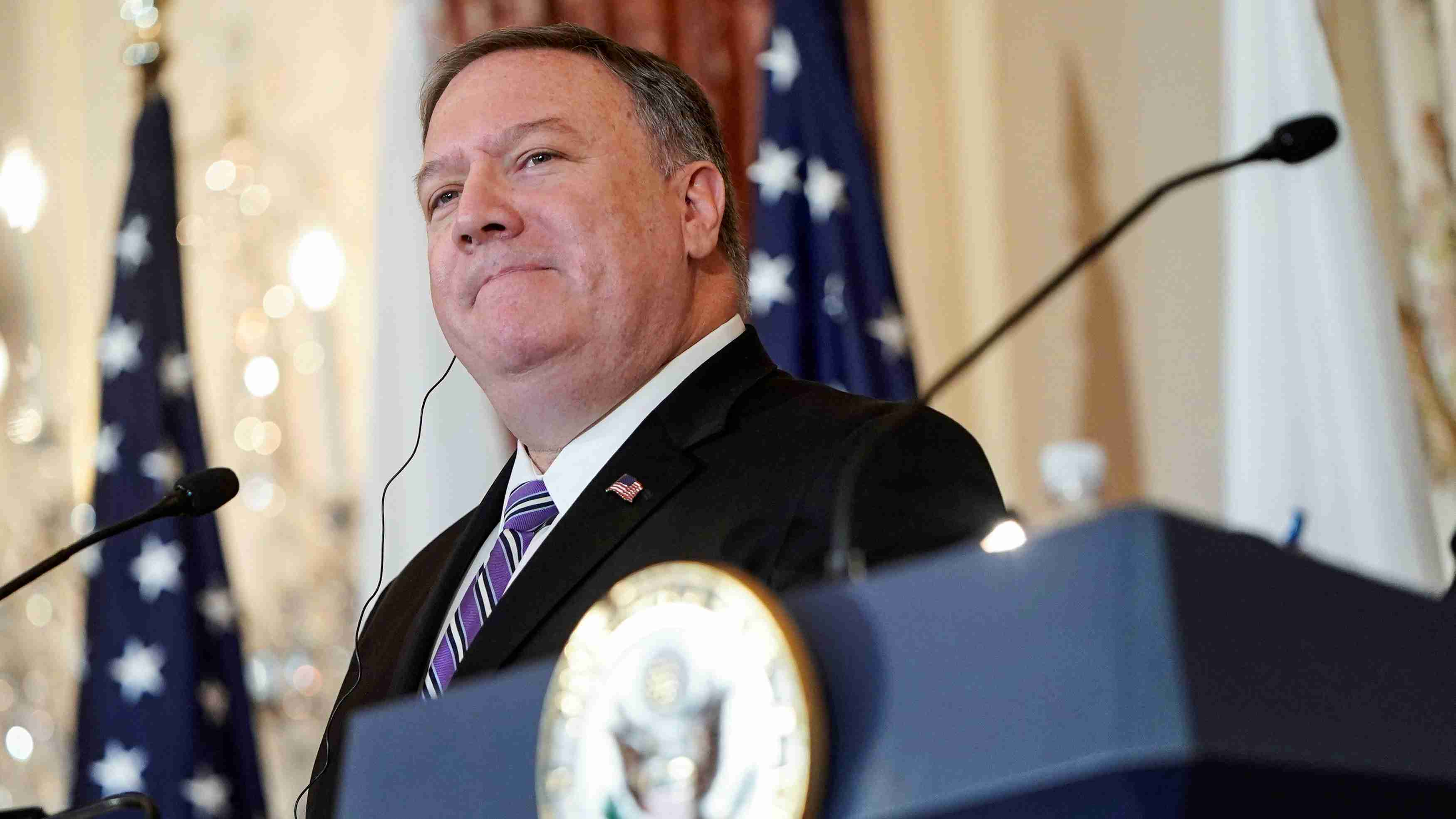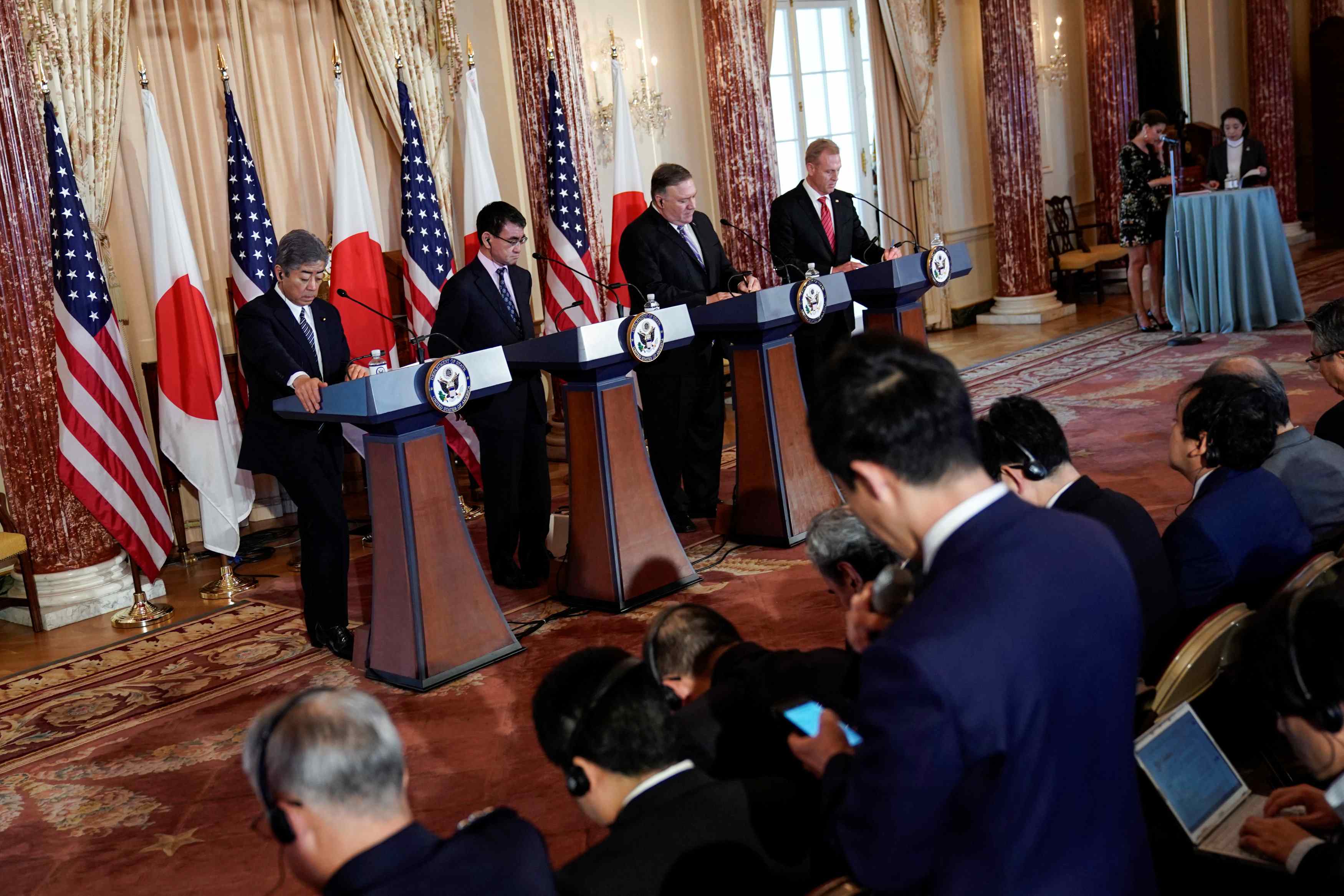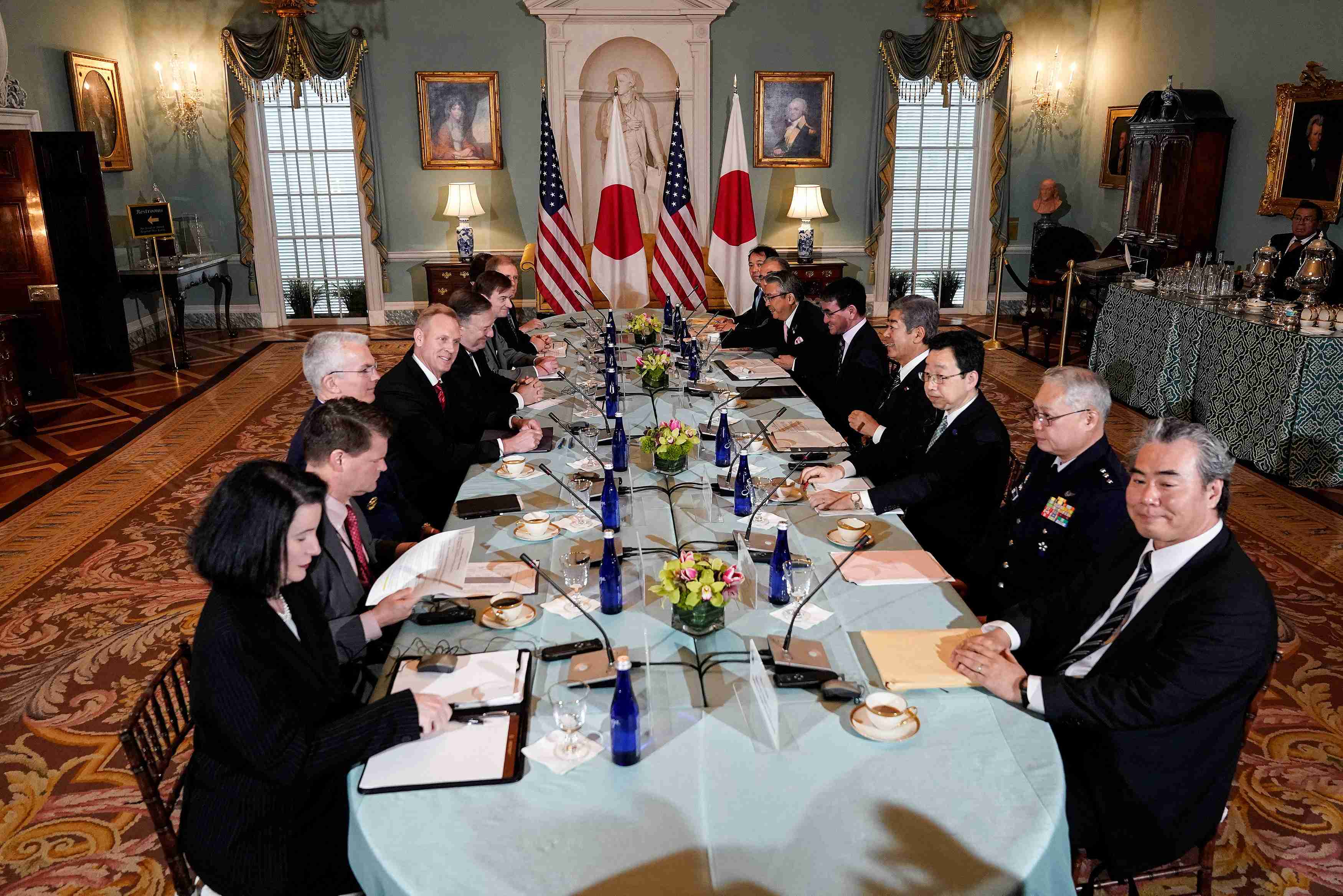
North America
08:48, 20-Apr-2019
Pompeo says nothing's changed on DPRK talks: 'It'll be my team'
CGTN

Secretary of State Mike Pompeo said U.S. diplomatic efforts will continue toward the goal of denuclearization of the Democratic People's Republic of Korea (DPRK), a day after a DPRK official said it no longer wanted to deal with him in talks.
"Nothing has changed. We'll continue to work to negotiate; still in charge of the team. President Trump's obviously in charge of the overall effort, but it'll be my team," Pompeo told reporters in Washington.
He added that U.S. diplomats led by Special Representative for DPRK Stephen Biegun would continue efforts to achieve DPRK's denuclearization, which he said DPRK leader Kim Jong Un committed to last June.
"I am convinced we will have a real opportunity to achieve that outcome," Pompeo said at a joint news conference after leading four-way talks with Japan's foreign and defense ministers.

Japanese Defense Minister Takeshi Iwaya, Japanese Foreign Minister Taro Kono, U.S. Secretary of State Mike Pompeo and Acting U.S. Secretary of Defense Patrick Shanahan (L to R) speak to the media at the State Department in Washington, U.S., April 19, 2019. /Reuters Photo
Japanese Defense Minister Takeshi Iwaya, Japanese Foreign Minister Taro Kono, U.S. Secretary of State Mike Pompeo and Acting U.S. Secretary of Defense Patrick Shanahan (L to R) speak to the media at the State Department in Washington, U.S., April 19, 2019. /Reuters Photo
In answer to a question, Pompeo said he believed it was possible to maintain diplomatic engagement with DPRK even without providing the sanctions relief it had been demanding.
“We will continue to press North Korea (DPRK) to abandon all of its weapons of mass destruction, ballistic missiles related programs and facilities,” Pompeo said. “We will continue to enforce all sanctions on North Korea (DPRK) and encourage every country to do so.”
On Thursday, the DPRK foreign ministry official in charge of U.S. affairs said the DPRK no longer wanted to deal with Pompeo and he should be replaced in talks by someone more mature.
Read more:
That statement came hours after Pyongyang test-fired a new tactical guided weapon
U.S. officials have played down the test of what DPRK has described as a “tactical” weapon, implying a short-range system rather than the ballistic missiles seen as a threat to the United States.
"I don't have the details; I just haven't been chasing it, there's been a few other priorities, so that'd give you kind of a sense of where it ranks," acting U.S. Defense Secretary Patrick Shanahan said before talks at the Pentagon with his Japanese counterpart Takeshi Iwaya.

Acting U.S. Secretary of Defense Patrick Shanahan and U.S. Secretary of State Mike Pompeo meet with Japanese Foreign Minister Taro Kono at the State Department in Washington, U.S., April 19, 2019. /Reuters Photo
Acting U.S. Secretary of Defense Patrick Shanahan and U.S. Secretary of State Mike Pompeo meet with Japanese Foreign Minister Taro Kono at the State Department in Washington, U.S., April 19, 2019. /Reuters Photo
Japan backs diplomacy
Foreign Minister Taro Kono reiterated after the talks in Washington that Abe was willing to meet Kim "if there is a chance."
"Japan is ready to normalize its relationship with North Korea (DPRK) when these missile, nuclear and abduction issues are taken care of," Kono said.
Abe will visit Washington next week to meet Trump, with whom he has built a friendly rapport. Trump and his wife Melania will then head to Japan next month as the first state guests after Naruhito is enthroned as Japan's emperor.
Japan will also hold a summit of the Group of 20 major economies in Osaka in June, although Trump has not yet confirmed his attendance.
(With inputs from Reuters, AFP)

SITEMAP
Copyright © 2018 CGTN. Beijing ICP prepared NO.16065310-3
Copyright © 2018 CGTN. Beijing ICP prepared NO.16065310-3